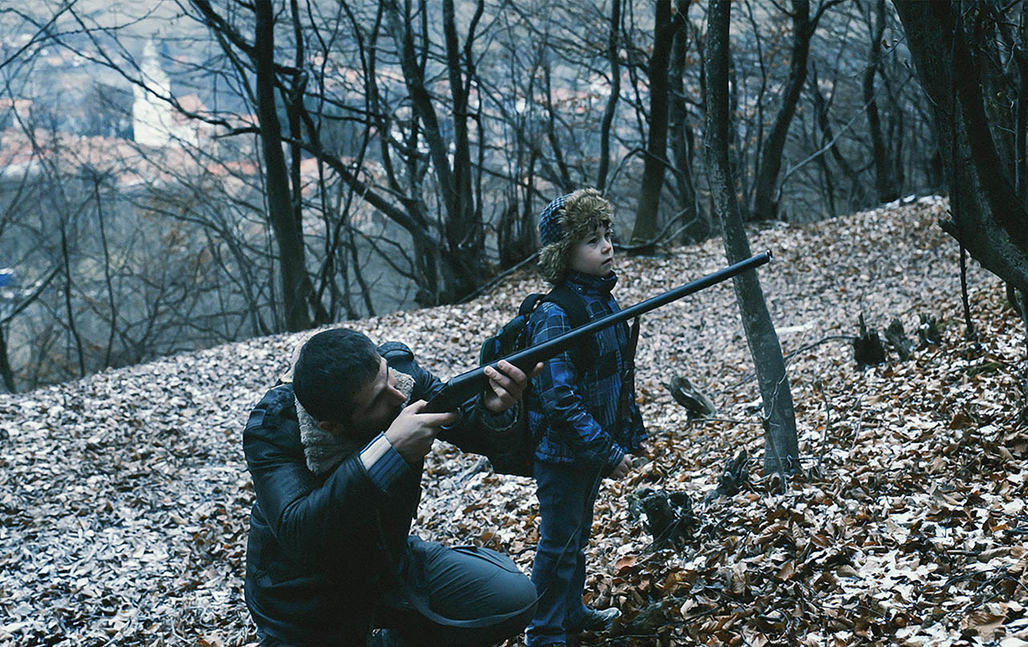
Cristian Mungiu holds a mirror up to humanity in R.M.N.

Six years after having won the Best Director Award for Graduation (Bacalaureat), Cristian Mungiu returns In Compétition with a feature film that alludes to the acceptance of others within the microcosm of a small village, with its own strict codes and mistrust towards strangers. Wtih R.M.N., the Romanian filmmaker also reminds us that humankind is but one element of the world's environment.
What gave you the idea for R.M.N.?
Life is always the primary source of inspiration for my stories. I start with real incidents and try to understand what that story says about us as people and about the state of the world today. For R.M.N., I documented and fictionalized a real incident which took place in Romania in early 2020, trying to give a voice to all the parties involved. I identified some elements that spoke about how thin this crust of empathy and humanity really is, and how little we need to show our darker, deeper self.
What did you want to show?
R.M.N. speaks about how people relate to other people coming from a different tribe than their own. Through a story placed in a tiny little community consisting of many ethnicities (Romanians, Hungarians, Germans), I try to hold a mirror up in front of today's world. One other thing that interested me when I decided to tackle this issue was to check what are the limits of our creative freedom today in a world suffocated by political correctness.
The small village where the story takes place, as well as the surrounding mountains and forests, are very important for the purpose of the film…
I was interested by this idea of a wide, thick forest in which this community is immersed—as we are in our own subconscious. Scouting was complicated because we needed to find a village where all these communities really did coexist naturally. I needed the forests to start right at the back door of every house in the village, and this was difficult. We ended up finding most of these characteristics in the village of Rimetea, Alba, Romania, but we needed to build a house from the scratch, as well as forests.
“My main concern in terms of directing is always truthfulness.”
You create lots of mystery in your way of filming. How did you want to construct R.M.N. visually?
I think that our brain itself contains a large amount of mystery, and I always want to welcome this into my films in various ways. I try to make the spectators feel and relate to what’s in the mind and souls of the character without putting it into words, through landscapes, sets, lighting, framing, and the movement of the camera. That said, my main concern in terms of directing is always truthfulness: how believable the moment is. I need to always keep an eye on clarity, rhythm, conciseness, and how the narrative unfolds.
What difficulties did you encounter while shooting?
Shooting was very difficult. I had already been shooting 4 months, 3 weeks et 2 days (4 luni, 3 saptamâni si 2 zile) (2007) et Beyond the Hills (Dupa dealuri) (2012) outdoors in winter, but this time I added a child character, crowds, and animals, often all in the same shot. Then Covid struck and we started losing crucial members of the crew: I didn’t know the people I was working with by the end of the shooting. And all this on a very small budget, in a village far away from civilization.
Do you already have a new film project that you can briefly tell me about?
In the 90s, while she was still alive, I spent time with my grandmother writing down allthat she could remember about her life. During the pandemic, I took the time to reorganize my notes as a book, and then I wrote a feature screenplay based on it. I'm now considering whether to turn it into a series instead. I think her story is unfortunately more than relevant today: in 1940, the Soviets decided to annex the province where she lived just because they could. It's a story between duty and your desire to live.


